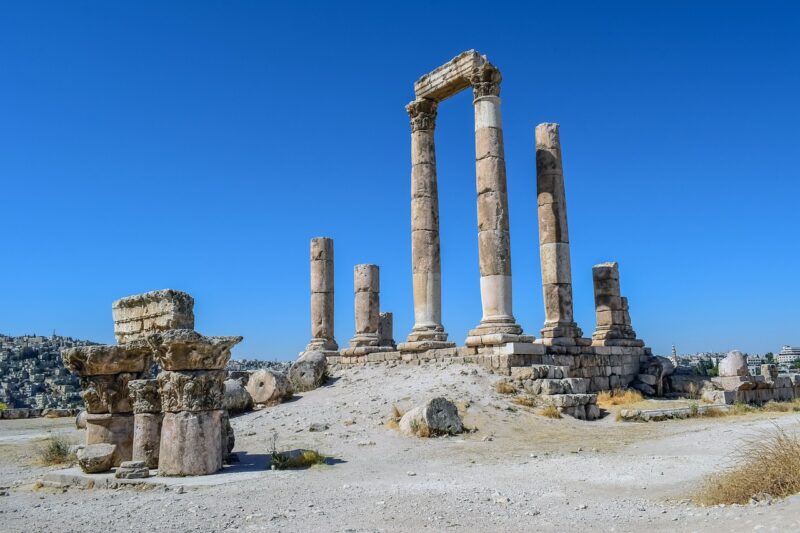
In the annals of history, there are tales of valor, bravery, and sacrifice. Yet, few stories capture the imagination quite like that of the geese who saved ancient Rome from a catastrophic ambush. This bizarre yet fascinating episode not only depicts the unpredictable nature of warfare but also underscores the importance of vigilance in guarding a city.
1. The Context: Rome in the 4th Century BC
As the capital of the Roman Empire, Rome was a bustling city at the heart of one of the most powerful civilizations in the ancient world. By the 4th century BC, the Romans had begun to expand their influence, often clashing with various tribes and kingdoms. One of these tribes was the Gauls—a fierce group of warriors known for their fierce tactics and resolve.
It was in this turbulent atmosphere, around 390 BC, that the significant event involving geese unfolded. As the story goes, the Gauls successfully invaded Roman territory and set their sights on the city of Rome itself.
2. The Sacred Geese of Juno Moneta
Nestled atop the Capitoline Hill, the Temple of Juno Moneta was a revered site in ancient Rome, dedicated to the goddess Juno, who was often called upon for guidance and protection. One notable feature of this temple was the presence of sacred geese. According to Roman religious beliefs, these birds were regarded as guardians of the city, believed to posses an acute sense of danger.
As the Gauls approached, the early warning signs were well within reach, but it was the geese that would become the unlikely heroes of the day. Their innate instincts would soon play a decisive role in the survival of Rome as a major power.
3. The Attack: A Surprise Ambush
One fateful night, while most of Rome lay in slumber, the Gauls stealthily made their way toward the city, intending to attack when the element of surprise was on their side. The unprepared Roman guards were crucially unaware, oblivious to the impending threat just outside the city walls. But at that moment, the sacred geese sensed the danger.
In a cacophony of honks, the geese began to squawk furiously, alerting the Roman guards and awakening the citizens of Rome. Their clamor shattered the silence of the night, turning the tide of impending disaster. Historians note that the loud noises of the geese echoing through the night acted as an alarm, allowing the Romans to prepare for the impending attack.
4. The Defense: Romans Rallying Together
Awakened by the warnings of the geese, the Romans quickly organized themselves. The soldiers scrambled to their posts, gathering their weapons and preparing to fight off the surprise invasion. The Gauls, confused and caught off guard by the sudden mobilization of the Roman forces, postponed their attack.
As chaos ensued on both sides, the Romans rallied together to defend their city against the invaders. Their response was emblematic of the fierce Roman spirit that would later define the Empire. According to legend, this fateful night marked a turning point; the bravery of the soldiers, combined with the alertness of the sacred geese, led to a successful defense against the would-be invaders.
5. The Outcome: A Lesson in Vigilance and Respect for Nature
In the end, the Roman defenders turned back the Gauls, forcing them to retreat. The episode not only cemented the geese’s place in Roman lore, but also served as a poignant reminder of the interconnectedness between humanity and the natural world. It instilled a sense of respect for the animals considered sacred in their culture.
Following the event, the sacred geese of Juno Moneta were honored by the citizens of Rome. They were celebrated in festivals, and the story of how they saved the city became embedded in popular memory. To this day, this curious narrative serves as a testament to the unexpected ways in which courage can come forth, even from the most unexpected beings.
6. Conclusion: The Legacy of the Sacred Geese
The legend of the sacred geese of Rome transcends mere historical storytelling. It resonates as a symbol of watchfulness and vigilance against unexpected threats. In a world filled with uncertainties, the story of how geese defended Rome stands as a reminder that sometimes the smallest creatures can play a pivotal role in safeguarding our futures.
Rome’s encounter with these feathered champions illuminates the unpredictable nature of warfare and the profound connections between nature, culture, and history. Today, the tale serves not just as an homage to the geese but as an enduring lesson on the importance of being attuned to the world around us, for it is in the most unlikely of guardians that we may find our salvation.








